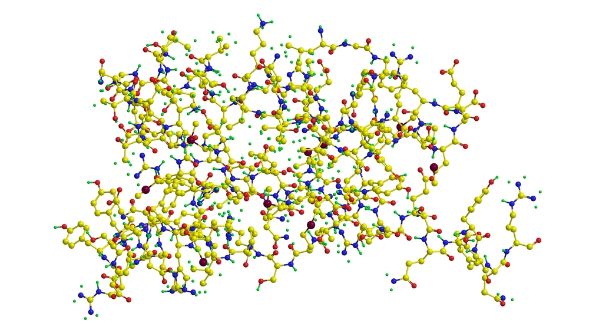Bovine Spongiform Encephalopathy (BSE), also known as mad cow disease, is a fatal neurodegenerative brain disease that affects cattle. It is part of a family of diseases called transmissible spongiform encephalopathies (TSEs). These diseases are characterized by long incubation periods and progress rapidly once symptoms develop, and are always fatal.
TSEs are caused by abnormally folded proteins called prion. They build up in the brain and cause damage to nerve cells. The brain tissue of animals with TSEs becomes pitted and filled with holes in a sponge-like pattern. The prion protein is thought to be infectious and may have been passed from infected cattle before a specific bovine offal ban was implemented.
BSE symptoms include a progressive loss of memory and other mental functions, and deterioration in motor control. It may also lead to deafness and limb paralysis. The affected animal dies within a few weeks of the onset of the symptoms.
Symptoms of BSE vary depending on the age of the infected animal and the type of prion that causes the disease. Typically, the disease develops in cattle between four and five years of age, but it has been found in older animals as well.
It is a member of the transmissible spongiform entrophy group of diseases, which includes scrapie in sheep and goats, chronic wasting disease (CWD) in cervids and variant Creutzfeldt-Jakob disease (vCJD) in humans. The causative agent is believed to be prions, but some scientists believe that virinos or retroviruses may also be involved.

Most scientists think that prion proteins change into abnormal prion proteins that are harmful to the body. In the case of BSE, scientists think the normal prion protein changes into an abnormal prion protein that is very harmful to the brain and causes a degenerative brain disease in cattle.
Signs of a cow that is infected with BSE include a slow, labored gait and an unusual way of walking. The cow usually has trouble eating, drinking, and taking care of itself. It can also lose its balance and fall.
Other symptoms of Bovine Spongiform Encephalopathy include a short-term memory loss, a weakness in one side of the body and difficulty swallowing. These symptoms can appear as soon as a cow is infected with prion proteins or as the disease progresses.
These symptoms can be severe and may affect the cow’s ability to live and work. The infected cow may have a hard time breathing or may become irritable and aggressive.
BSE can be transmitted from infected to uninfected animals through contact with blood, urine or other bodily fluids. This is why it is so important for people to wash their hands before handling cattle.
The best way to prevent a BSE infection is to avoid feeding cattle rendered material from slaughtered animals and to isolate and destroy infected animals. Most countries have developed policies for monitoring and controlling the spread of BSE, and for dealing promptly and thoroughly with cases that arise when they do occur.








